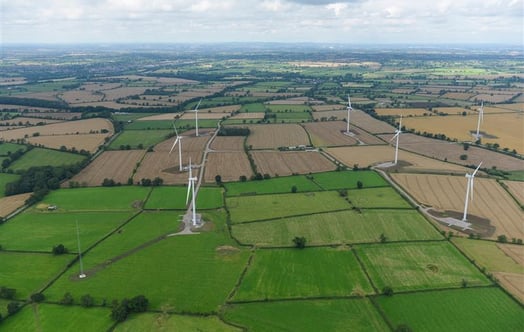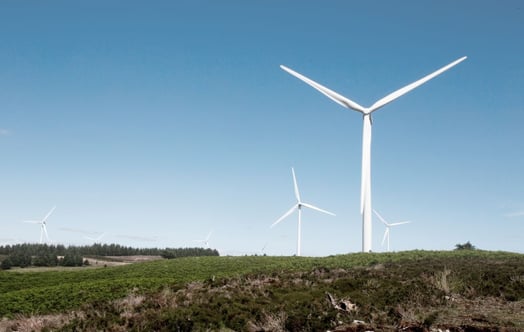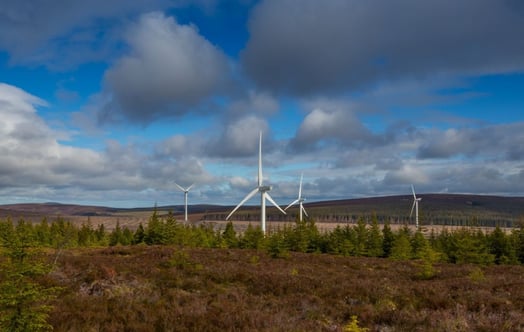
Cheaper mortgages for greener homes, say majority of UK households
- 61%¹ of people in the UK believe mortgages should be cheaper if they are loaned on homes which emit fewer emissions
- But only a quarter of UK households (24%)² would be confident in choosing the correct low-carbon heating solution for their home
- Fewer than one in four (23%)³ felt they could afford a low-carbon heating system
- Vattenfall is calling for a clear plan to get the right technology installed in the right homes without heaping costs on UK households
Over three fifths⁴ of individuals in the UK believe that mortgages should be cheaper for those who carry out green home improvements.
However, research conducted by Vattenfall, one of Europe’s largest producers and retailers of electricity and heat, also revealed the level of confusion among households about what those upgrades should be: less than one in four say they would know what kind of heating system they would need if gas boilers had to be replaced with low-carbon alternatives, for example.
The survey examined attitudes and knowledge around energy and heating in the UK. The findings come ahead of the UK Government’s Heat and Buildings Strategy, expected to outline a plan for emission-free housing.
The research showed that the majority of UK adults would prefer to live in a home that did not produce carbon emissions (62%)⁵, however many do not know how they will fund the upgrade. Less than a quarter of people (23%)³ were confident that they would be able to stump up the cost to install a low carbon heating system in their home.
People are split over whether it should be more difficult to secure a mortgage for homes that are more polluting, with a third of respondents each agreeing and disagreeing (both 32%)⁶ when questioned on this.
There are a range of technologies that can be used to decarbonise heating our homes, including installing heat pumps, connecting homes to district heat networks in urban areas, and potentially using hydrogen as a replacement for natural gas.
As much as 37 per cent⁷ of UK carbon emissions come from heating. With around 24 million⁸ homes and businesses still using fossil fuels to keep warm, the Government has been warned by their advisors on the Climate Change Committee that there needs to be a plan to phase out fossil fuel heating in order to hit the target of net zero by 2050.
Vattenfall believes the forthcoming Heat and Buildings strategy needs to set out what low-carbon technologies need to be installed in which parts of the country, so that industry can do what is required to get started on the roll-out. This also needs to take into account developing and upskilling the UK’s supply chain and workforce.

Mike Reynolds, Managing Director at Vattenfall Heat UK
Mike Reynolds, Managing Director at Vattenfall Heat UK said:
“Our research shows that although people want to live in low-carbon homes, most don’t know what they need to do to convert their properties nor how they would pay for it.
“The huge cost of insulating homes and removing emissions from heating means we can’t expect bill payers to stump up the money for everything. We need a plan setting out what upgrades need to happen where, and new ideas - such as affordable and simple mortgages for homeowners, or incentives for commercial property owners to go green – to get the money flowing to pay for all of this.
“The Government’s forthcoming Heat & Buildings Strategy is the perfect opportunity to set out practical policies which will kick-start this massive task.”
Video player requires marketing cookies.
To view this content please click here to allow marketing cookies.
Learn more about district heating by watching this short film.
Notes:
Research conducted for Vattenfall by Opinium of 2,000 UK adults between 28th May-1st June 2021
1. When asked ‘How much do you agree or disagree that mortgages should be cheaper if they are loaned on homes which emit fewer emissions’, 61% of people were ‘in agreement‘.
2. When asked 'If choosing a new low-carbon heating system for your home, how confident would you be choosing the right low-carbon heating system for your home or location?', 24% said they would be ‘confident in choosing the correct low-carbon heating solution for their home’.
3. When asked 'If choosing a new low-carbon heating system for your home, how confident are you in being able to afford to install a low-carbon heating system?’ 23% felt they ‘could afford to install a low-carbon heating system’.
4. When asked ‘How much do you agree or disagree that mortgages should be cheaper if you carry out green home improvements as part of the agreement? 61% of individuals in the UK were ‘in agreement’.
5. When asked ‘How much do you agree or disagree, that you would prefer to live in a home that did not produce carbon emissions?’ 62% said they would ‘prefer to live in a home that did not produce carbon emissions.’
6. When asked 'How much do you agree or disagree that it should be more difficult to get a mortgage for homes that are more polluting?' 32% said that they ‘disagreed’ and 32% said that they ‘agreed’.
7. Source: The Department of Business, Environment and Industrial Strategy, Clean Growth - Transforming Heating, Overview of Current Evidence, December 2018, (p13).
8. Source: The Department of Business, Environment and Industrial Strategy, Clean Growth - Transforming Heating, Overview of Current Evidence, December 2018, (p.5).
Other findings from the research:
· 40% of 18-34 year olds would be willing to pay more to buy or rent a home that had lower carbon emissions
· Just under three in five (59%) were not confident in choosing a heating system that has the lowest possible carbon emissions
· On who should be responsible for deciding which types of low-carbon heating should be installed in different parts of the country, local authorities came out top in every area followed by national governments
· Housebuilders and property developers came third in towns and city centres, while in suburban and rural areas homeowners came third




